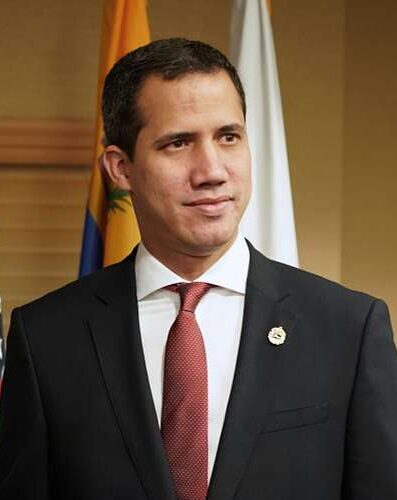Venezuela
Where
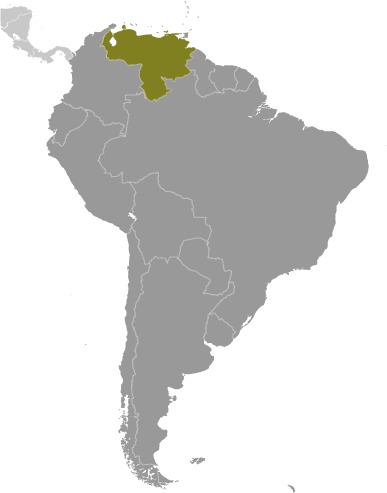
Map of South America with Venezuela indicated in green. Image courtesy of the CIA World Factbook is unmodified and located in the public domain.
Venezuela is at the northern end of the South American coast and is approximately the size of Texas and Oklahoma combined. The country borders Colombia, Guyana, and Brazil, and shares a North Atlantic Ocean coastline with Aruba and Trinidad and Tobago.
What
Venezuela is experiencing a humanitarian, economic, and political crisis that has left the people in the region in dire need of humanitarian aid. In just over a decade, the country has fallen from economic stability and expansive social programs to control by an authoritarian regime and economic failure.
Background
The Bolivarian Revolution in 1983, named after Simon Bolivar, a 19th-century Venezuelan advocate of ending Spanish rule in the Americas, was led by Hugo Chavez. This introduced key socialist policies to Venezuelans that quickly gained support among the working class. However, the policies were unpopular among the business community, private sector, and key international actors such as the US. Chavez was criticized for his authoritarian tendencies and economic mismanagement. Despite the opposition, Chavez remained in power and was well-liked because of social programs that were funded by oil revenue. Chavez passed away in 2013, and his chosen successor, Nicolas Maduro, assumed power. [1]
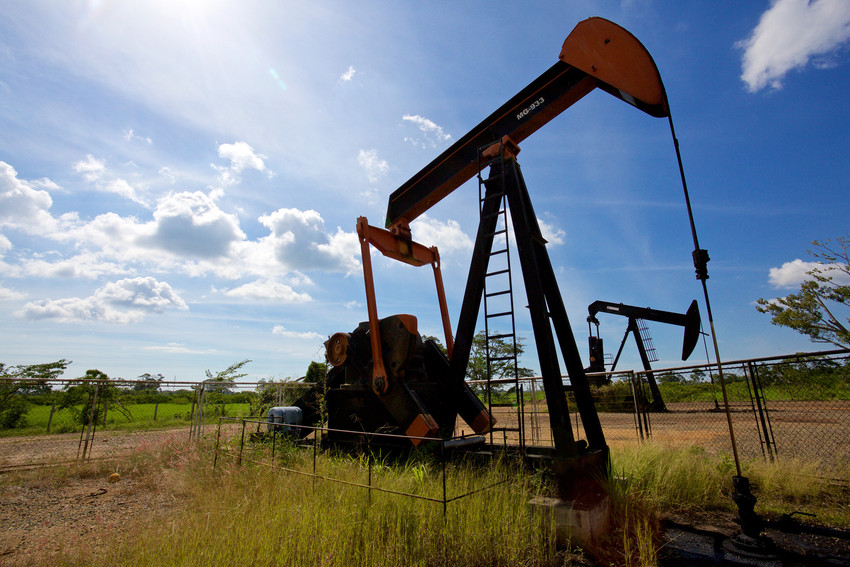
Venezuela has the world’s largest oil reserves. Image courtesy of Repsol is unmodified and licensed under CC BY-NC-SA 2.0.
Maduro’s presidency brought a steep decline in oil export prices, the primary source of Venezuela’s revenue. This led to economic collapse, resulting in food and medicine shortages, mass migration, human rights violations, and more. Maduro attempted to print money to curb the collapse. This pushed the country into hyperinflation, ballooning the price of necessities. Country-wide protests and riots occurred in 2014, followed by a mass exodus of millions of people. By 2015, voter support for Maduro was waning and an opposition-controlled National Assembly was elected for the first time in two decades. Tension began between the Maduro regime and the legislature. [2]
In 2018, Venezuela hosted its first presidential election since Chavez’s death five years earlier. This election was widely contested by many, including a group of 14 countries known as the Lima Group. In 2017, leaders of a dozen countries had met in Lima, Peru to consider strategies to address the Venezuelan social and economic crises.
Maduro was sworn into office in January 2019. The National Assembly declared the election illegitimate and named Juan Guaido as the interim president. Many countries, including the United States, Canada, most of the European
Union (EU), and the Organization of American States) OAS) recognized Guaido as the interim president. Other key countries, including China, Cuba, Russia, and Turkey, continued to recognize Maduro. This resulted in a standoff between the US and the Maduro regime.[17]
Maduro relies on Cuba for military and intelligence support. In a move to pressure Maduro’s relationship with Cuba, the US issued sanctions on oil shipments to Cuba. Russia sent troops in 2019 to help the Venezuelan government evade these oil sanctions. China also backed the Maduro regime by offering to help rebuild Venezuela’s power grid. [3]
In 2024, Maduro announced the withdrawal of all Venezuelan diplomatic staff from embassies in Argentina, Chile, Costa Rica, Peru, Panama, Dominican Republic, and Uruguay, thus severing relations with these countries.[4]
Venezuela has seen many protests since 2014, with nearly 10,000 occurring in 2014 alone. The Maduro regime is accused of committing crimes against humanity with their violent response to protests. The regime is also accused of arbitrary detention, torture, ill-treatment, sexual and gender-based violence, and disappearances targeted towards perceived and real political opponents. There is speculation that security forces have engaged in extrajudicial killings to “combat crime” by targeting men aged 18-30. [5] The United Nations Human Rights Council established a Fact-Finding Mission (FFM) for Venezuela in 2019 which determined that abuses had been committed since 2014. The report also considers these attacks to be systemic in being directed towards the civilian population, highlighting collaboration with the violence at even the highest levels of the government.
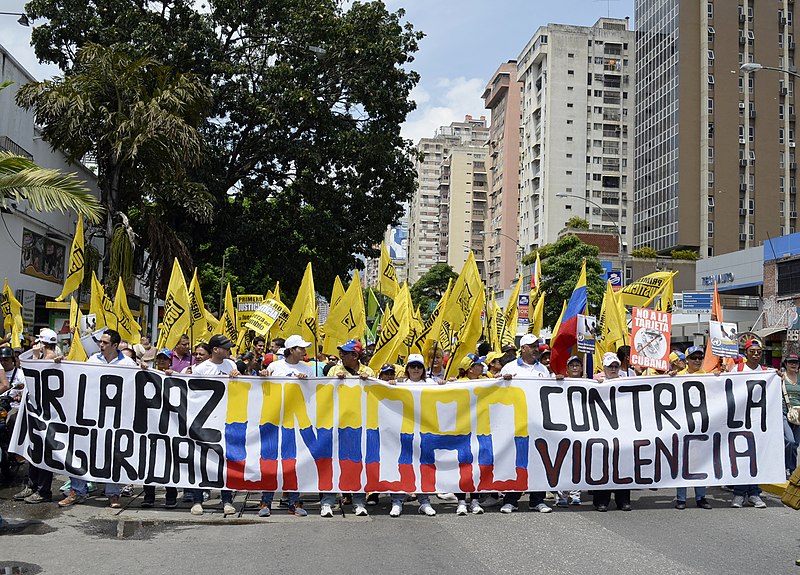
10,000 protests occurred in Venezuela in 2014. Image courtesy of Carlos Díaz is unmodified and licensed under CC BY 2.0.
Food and medicine insecurity has been prevalent in Venezuela since Maduro’s 2018 illegitimate election. Today 78% of the country experiences food insecurity, with malnutrition on the rise. [6] In 2019 Maduro allowed an emergency aid shipment from the Red Cross, but severe food shortages continue. Over half of the country lives in extreme poverty and 80% of the population lives below the poverty line. Humanitarian aid has been limited due to the regime’s strict control, and the humanitarian crisis continues. [2]
Current economic and political instability leaves many at risk for physical, sexual, and psychological abuse. An increase in gender-based violence correlates with the illegitimate 2018 election, with cases increasing more than 14 times from the previous year. [7] Survivors struggle to find support or justice, and 64% of women in Venezuela reported experiencing psychological violence. Femicide, defined as the killing of a woman or girl because of their gender, occurs once every 37 hours. Despite these statistics, there is no place for survivors to report these crimes. Four in five women have expressed that they do not want to report their cases to authorities for fear of how it may affect their lives. [8]
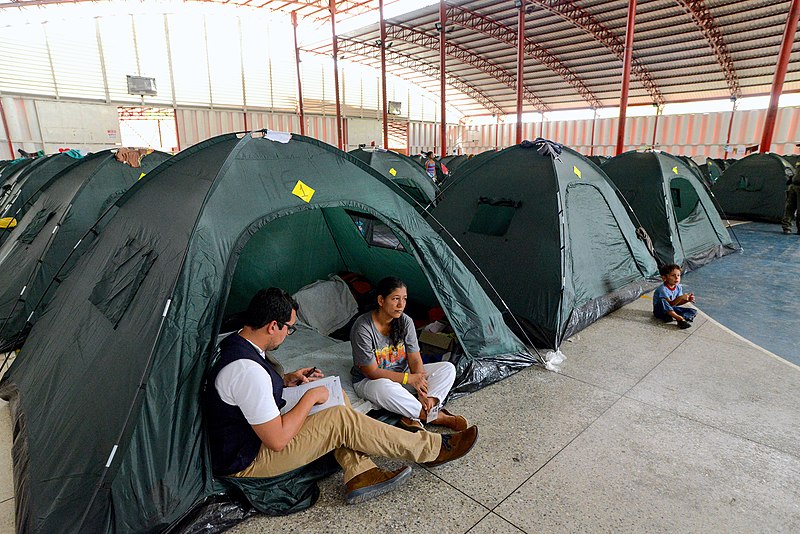
6.5 million Venezuelans have fled to neighboring countries. Image courtesy of Comisión Interamericana de Derechos Humanos is unmodified and licensed under CC BY 2.0.
Since the Maduro regime came to power, more than 8 million Venezuelans have fled the country. Fully 6.5 million people have sought refuge in other Latin American and Caribbean countries, resulting in one of the largest externally-displaced crises in the region.[9] There is an expected need of $617 million in humanitarian aid needed to help Venezuelans. However, aid is needed across the region, as receiving countries struggle to assist refugees seeking shelter in their country.
UN agencies work with host governments, partner organizations, civil societies, and faith-based organizations in attempts to provide humanitarian aid and promote socio-economic inclusion. [10] The Maduro regime blocks these efforts by limiting access to the country, disseminating misinformation, and instituting regulations to limit civil organizations. [11]
Today
In July 2024 Venezuela held national presidential elections between Maduro and opposition candidate Edmundo Gonzales. The original opposition leader, Maria Machado, was banned from running after a poll emerged saying she would have over 90% popular support. [12]
Unsurprisingly, Maduro announced that he won the election with over 50% of votes. The Maduro regime failed to release tallies from each polling location, resulting in an inability to verify election results, and consequently, other nations have refused to recognize Maduro as the winner. In addition to falsifying election results, the Maduro regime forced opposition candidate Gonzales to sign a letter accepting election results. Because of threats to his life, Gonzales has sought asylum in Spain. [13]
International Response
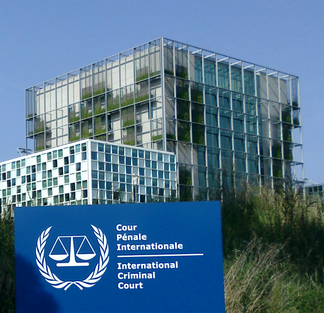
The International Criminal Court in The Hague, Netherlands. Image courtesy of Oseveno is cropped and licensed under CC BY-SA 4.0.
The international community does not recognize Maduro as the winner of the election or the leader of the country.
In 2023 the International Criminal Court in The Hague, Netherlands (ICC) announced an investigation into the Maduro regime for crimes against humanity. [14] The investigation will cover alleged crimes committed since 2017 including deprivation of physical liberty, torture, rape, other forms of sexual violence, and persecution based on political belief. [15]
The U.S. Department of State condemns the Maduro regime for its election conduct and repression of and harm towards protesters. U.S. Secretary of State Antony Blinken has urged Maduro to meet with opposition leaders to discuss the disputed election. The US continues to impose economic sanctions on Venezuela in attempts to weaken the regime and force negotiation. [17] Some experts believe it would be possible for the US and for current opposition leaders to identify key figures inside the regime to engage Maduro into a peaceful transfer of power. [16]
The response across Latin America to the election results has been mixed. Leaders from Bolivia, Cuba, Nicaragua, and Honduras publicly congratulated Maduro on the win, while counterparts in Chile, Costa Rica, and Guatemala have questioned the election results. [18] These countries, along with Uruguay, Argentina, Ecuador, Panama, and Paraguay, called for an emergency meeting with the Organization of American States to review election results. Leaders across the region share resentment towards the Maduro regime, as roughly 80% of Venezuelans refugees are living in 17 countries throughout Latin America and the Caribbean. [19]
Written by Evelyn Middleton, October 2024.
References
[1] Council on Foreign Relations. (n.d.). Venezuela’s Chavez Era. Council on Foreign Relations. https://www.cfr.org/timeline/venezuelas-chavez-era
[2] Center for Preventive Action. (2024, July). Venezuela crisis | global conflict tracker. Council on Foreign Relations. https://www.cfr.org/global-conflict-tracker/conflict/instability-venezuela
[3] Amnesty International. (2023). Human rights in Venezuela. https://www.amnesty.org/en/location/americas/south-america/venezuela/report-venezuela/
[4] Rocha, J. (2024, July). Venezuela severs diplomatic relations with several Latin American countries amid election disputes. Anadolu Ajansı. https://www.aa.com.tr/en/americas/venezuela-severs-diplomatic-relations-with-several-latin-american-countries-amid-election-dispute/3288975
[5] OHCR. (n.d.). Independent International Fact-finding mission on the Bolivarian Republic of Venezuela. OHCHR. https://www.ohchr.org/en/hr-bodies/hrc/ffmv/index
[6] Amnesty International. (2023). Human rights in Venezuela. https://www.amnesty.org/en/location/americas/south-america/venezuela/report-venezuela/
[7] Amnesty International. (2023). Human rights in Venezuela. https://www.amnesty.org/en/location/americas/south-america/venezuela/report-venezuela/
[8] International Rescue Committee. (n.d.). For Venezuelan women, gender-based violence is a widespread risk at home and abroad, warns IRC. The IRC. https://www.rescue.org/press-release/venezuelan-women-gender-based-violence-widespread-risk-home-and-abroad-warns-irc
[9] Figuera, N. C., Ana, & Gerardo. (2023, August). Venezuela situation. UNHCR US. https://www.unhcr.org/us/emergencies/venezuela-situation
[10] Omer, S. (2024, August 14). Venezuela crisis: Facts, faqs, and how to help. World Vision. https://www.worldvision.org/disaster-relief-news-stories/venezuela-crisis-facts
[11] Wamsley, L. (2019, February 8). Humanitarian aid arrives for Venezuela – but Maduro blocks it. NPR. https://www.npr.org/2019/02/08/692698637/humanitarian-aid-arrives-for-venezuela-but-maduro-blocks-it
[12] Inés Santaeulalia, J. D. Q. (2023, October 23). María Corina Machado sweeps the opposition’s presidential primary in Venezuela. EL PAÍS English. https://english.elpais.com/international/2023-10-23/maria-corina-machado-sweeps-the-oppositions-presidential-primary-in-venezuela.html
[13] Goodman, J., & Cano, R. G. (2024, July 29). Maduro declared winner in Venezuela’s presidential election, opposition contests results. PBS. https://www.pbs.org/newshour/world/maduro-declared-winner-in-venezuelas-presidential-election-opposition-contests-results
[14] Venezuela: ICC investigation gets go-ahead. (2023, June 28). Human Rights Watch. https://www.hrw.org/news/2023/06/27/venezuela-icc-investigation-gets-go-ahead
[15] Lukiv, J. (2024, September 19). Venezuela: González “forced” to accept Maduro election win. BBC News. https://www.bbc.com/news/articles/c2kdx0zx30no
[16] Congressional Research Service. (2024, September 13). Venezuela: Overview of U.S. sanctions policy – CRS reports. https://crsreports.congress.gov/product/pdf/IF/IF10715
[17] News, V. (2024, September 26). Blinken urges Venezuela’s maduro to meet with opposition, discuss disputed election. Voice of America. https://www.voanews.com/a/blinken-urges-venezuela-s-maduro-to-meet-with-opposition-discuss-disputed-election/7800948.html
[18] Reuters. (2024a, July 29). International leaders react to Venezuela’s election results. https://www.reuters.com/world/americas/latin-american-leaders-react-venezuela-election-results-2024-07-29/
[19] Amnesty International. (2022, July 12). Facts & figures: Gender-based violence against Venezuelan refugees. https://www.amnesty.org/en/latest/news/2022/07/facts-figures-gender-based-violence-venezuelan-refugees-colombia-peru/



